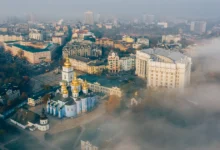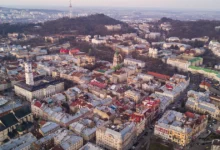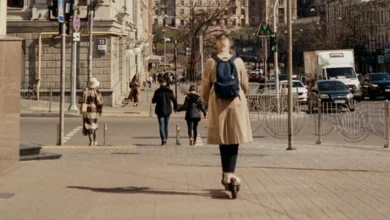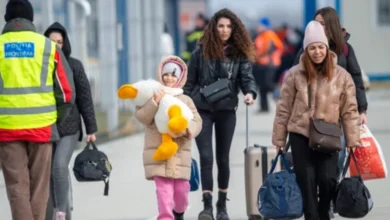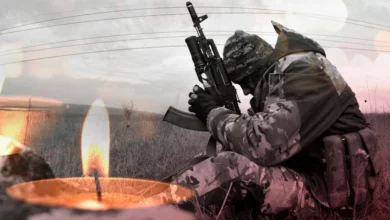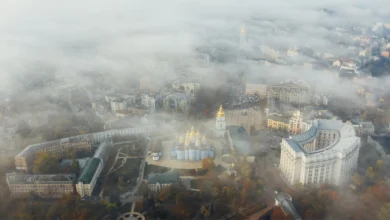Belief in Victory, Support for the Church and Social Tension: How Ukrainians Assess the Situation in the Country – Razumkov Sociology Center

Despite war fatigue, material hardship, and political turbulence, the vast majority of Ukrainians continue to believe in victory. At the same time, the Church remains one of the most trusted institutions, along with the army, volunteers and rescuers. These are the results of a recent opinion poll conducted by the Razumkov Center in late winter 2025.
Source: Razumkov Center
Ukrainians believe in victory, but their vision of it differs
According to the survey, 74% of Ukrainians believe in Ukraine’s victory, although the percentage of confidence varies by region (from 56% in the South to 81.5% in the West).
Most often, the following are considered victories:
- The expulsion of Russian troops from the entire territory of
- Ukraine and the full restoration of borders (30%);
- restoration of the situation as of February 23, 2022 (22%);
- expulsion of troops without returning Crimea (11%);
- ending the war, even with the occupation of some territories (10%);
- Russia’s complete defeat, with internal changes in the aggressor country (17%).
Public attitudes: faith, doubts and expectations
In February-March 2025:
- only 32% believe the country is moving in the right direction;
- 46% are convinced of the opposite, and another quarter have not decided.
- However, even in such conditions:
- 28% believe that the problems will be overcome in the coming years;
- another 47% – in the longer term;
- only 10% see no way out of the current situation.
Church is among the leaders of public trust
Against the backdrop of mass distrust of political institutions, the Church remains one of the most reliable guides for Ukrainians:
- 65% trust the Church, the seventh highest among all social and state institutions.
- For comparison: The Armed Forces of Ukraine are trusted by 93.5%, and the President – by 57.5%.
The public demand for moral leadership and support from spiritual institutions is growing, especially in times of war, loss, and moral fatigue.
How much do you trust the following social institutions?
| Institution | Do not trust at all | Rather do not trust | Rather trust | Fully trust | Hard to say | Trust–distrust balance* |
|---|---|---|---|---|---|---|
| President of Ukraine | 13.8% | 21.3% | 40.2% | 17.3% | 7.5% | +22.4 |
| Verkhovna Rada (Parliament) | 37.0% | 39.7% | 15.9% | 1.9% | 5.4% | –58.9 |
| Government of Ukraine | 32.1% | 38.6% | 20.2% | 2.3% | 6.8% | –48.2 |
| State apparatus (officials) | 35.2% | 44.0% | 12.1% | 1.2% | 7.6% | –65.9 |
| Mayor of your city/town/village | 16.5% | 25.5% | 42.8% | 8.0% | 7.3% | +8.8 |
| Local council of your city/town/village | 14.7% | 28.8% | 40.8% | 6.8% | 8.9% | +4.1 |
| Armed Forces of Ukraine | 1.7% | 3.0% | 25.5% | 68.0% | 1.7% | +88.8 |
| Ministry of Defense of Ukraine | 6.0% | 23.0% | 38.8% | 24.3% | 7.9% | +34.1 |
| State Border Guard Service | 5.4% | 15.0% | 40.2% | 33.5% | 5.8% | +53.3 |
| National Guard of Ukraine | 4.1% | 10.7% | 41.8% | 37.4% | 6.0% | +64.4 |
| National Police | 14.4% | 31.9% | 35.5% | 11.2% | 6.9% | +0.4 |
| Security Service of Ukraine (SBU) | 8.0% | 20.1% | 44.5% | 19.3% | 8.1% | +35.7 |
| State Emergency Service | 3.7% | 6.7% | 37.4% | 48.1% | 4.1% | +75.1 |
| Prosecutor’s Office | 27.5% | 36.0% | 19.5% | 3.0% | 14.0% | –41.0 |
| Courts (judicial system in general) | 34.2% | 38.7% | 11.7% | 2.7% | 12.8% | –58.5 |
| National Anti-Corruption Bureau (NABU) | 24.6% | 37.7% | 18.1% | 3.2% | 16.5% | –41.0 |
| Specialized Anti-Corruption Prosecutor’s Office | 25.9% | 35.7% | 17.4% | 3.0% | 18.0% | –41.2 |
| National Agency on Corruption Prevention (NACP) | 26.3% | 35.8% | 16.4% | 2.6% | 18.8% | –43.1 |
| Human Rights Ombudsman | 12.5% | 21.5% | 34.0% | 6.1% | 26.0% | +6.1 |
| Ukrainian media | 17.4% | 33.0% | 36.5% | 4.7% | 8.4% | –9.2 |
| National Bank of Ukraine | 12.1% | 25.3% | 45.0% | 5.6% | 12.1% | +13.2 |
| Commercial banks | 21.3% | 32.5% | 28.0% | 3.3% | 15.0% | –22.5 |
| Trade unions | 18.1% | 27.8% | 19.9% | 2.6% | 31.6% | –23.4 |
| Political parties | 33.4% | 44.0% | 8.8% | 1.4% | 12.5% | –67.2 |
| Civil society organizations | 7.3% | 19.6% | 52.1% | 8.4% | 12.7% | +33.6 |
| Church | 8.4% | 13.8% | 40.0% | 24.7% | 13.1% | +42.5 |
| Volunteer battalions | 2.4% | 6.1% | 43.8% | 41.7% | 5.9% | +77.0 |
| Volunteer organizations | 3.8% | 10.4% | 49.6% | 30.4% | 5.8% | +65.8 |
Political Trust and Elections in Time of War
Sociologists have recorded a deep crisis of trust in political and state institutions:
- 79% do not trust officials, 77% do not trust political parties and the Verkhovna Rada, and 73% do not trust the courts.
Regarding elections during the war
- only 22% support holding presidential or parliamentary elections before the end of the war;
- 66% are against it, believing that it can divide society (47%) and harm the victory (49%).
Even among those who do not support the current government, the majority do not support elections during the war.
Post-war voting – not earlier than in six months
Respondents are cautious about the prospect of a change of government:
- 36-40% believe that elections should be held immediately after the end of the war;
- another 34-35% – in 6 months after the martial law is lifted;
- the rest – in a year or later.
Religious dimension: Church is a point of stability
Against the backdrop of disbelief in state structures, the Church remains an important support for millions of Ukrainians, including internally displaced persons, military families, and residents of frontline regions. This once again emphasizes the moral responsibility of religious leaders and the need to expand their public service.

